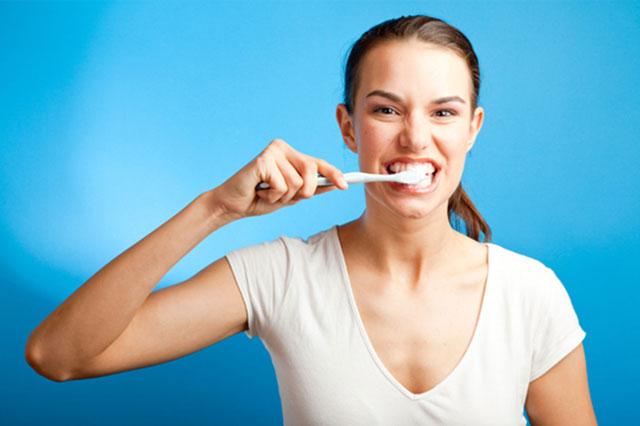You are here
Wanted: a watchdog for the mobile medical app explosion
By Reuters - Jun 08,2014 - Last updated at Jun 08,2014
SAN FRANCISCO – A smartphone app that rids you of acne. Another that monitors your heart rate 24-7. One that detects skin cancer by looking at your birthmarks. If they sound too good to be true, they maybe.
Patients today use a number of apps that purport to track and treat a panoply of ailments, a headache for regulators and patient safety advocates. Now, the advent of wearable devices bristling with sophisticated biotracking sensors is stirring concern in the medical community about misdiagnoses that could have serious consequences for consumers.
Some are asking whether Apple and Google should do more to police their fast-growing app marketplaces.
“Most of the health apps out there are built by people with zero medical experience,” said Paris Wallace, chief executive officer of Ovuline, a popular fertility app. Worse, many developers don’t have the resources for legal counsel, Wallace said, and are more likely to make false claims to patients without seeking FDA clearance.
The Food and Drug Administration last year published guidelines on the kinds of mobile apps it will supervise. But industry insiders fear the agency may get overwhelmed as apps mushroom.
Last week Samsung Electronics launched a health platform for third-party developers, SAMI.
This week Apple introduced “Healthkit”, a repository of data for medical apps that opens up new realms for developers to explore. It may also make it easier for those with scant understanding of regulatory protocols to dive into the market.
Health apps are big business for Apple and Google, the two leading app marketplaces. The iPhone maker is the preferred choice for developers. Analytics firm AppAnnie found that Apple generates five times more revenue from downloads of health and fitness apps than Google.
How the two companies, who both declined to comment for this story, will handle the proliferation of medical apps is unclear. One source familiar with the matter said Apple is looking to add a regulatory expert to its growing digital health team, who will be tasked with oversight of the App Store.
Research has shown that many existing medical apps may be useless. Seventy-five per cent of smartphone apps that claim to assess malignancy are wrongly diagnosing at least 30 per cent of melanomas as “unconcerning”, researchers from the American Medical Association’s JAMA Dermatology found.
A 2012 study by the New England Centre for Investigative Reporting revealed that of 1,500 health apps it evaluated, 20 per cent claimed to treat or cure medical problems, but only a small percentage of them had been clinically tested.
Medical professionals fear patients may defer an inperson checkup because of faulty results. By the time they see a doctor it may be too late. A false negative for cancer, for instance, may prompt a user to put off professional consultation.
“If patients perceive a mobile app as a cheaper alternative to a trip to my office, that’s worrying,” said Molly Maloof, a physician who has spoken about such matters and is a consultant for digital-health start-ups like Sano Intelligence and GeneSolve.
Echoing a familiar Silicon Valley stance, developers argue that increased federal oversight will only stifle innovation.
Mike Lee, cofounder of MyFitnessPal, a weight-loss app that claims 50 million users, said his company wouldn’t exist today if it been required to seek regulatory approval: “We wouldn’t have been able to afford the tremendous time and expense.”
Patient safety advocates counter that the FDA’s concern shouldn’t be to appease Silicon Valley’s entrepreneurs but to protect consumers. Moreover, apps like MyFitnessPal are focused on wellness and would not require FDA approval.
Policy makers are struggling to keep up. The FDA lacks the resources to monitor each and every one of these apps.
According to an IMSHealth report from October 2013, more than 43,000 health-related apps are available on the US iTunes store, and 33,500 on Google Play. Bradley Merrill Thompson, a healthcare-focused attorney with Washington, DC-based Epstein, Becker and Green, speculates that hundreds of unregulated mobile “medical devices” — anything with a specific medical application — populate Apple’s store.
Reuters found several dozen applications on the App Store and Google Play that fall into the FDA’s definition of a medical device. Examples include a heart-rate monitor targeted to patients with chronic conditions and an app for diabetics to detect early signs of vision loss.
Those products have not been cleared by the feds, and offer little or no clinical evidence to back up their claims.
“Most of these (apps) carry minimal risks to patients and consumers. However, others can carry significant risks if they do not function properly,” an FDA spokeswoman said on Wednesday.
“FDA intends to exercise enforcement discretion for the majority of mobile apps that meet the definition of device.”
Related Articles
Apple Inc. has been discussing how its “HealthKit” service will work with health providers at Mount Sinai, the Cleveland Clinic and Johns Hopkins as well as with Allscripts, a competitor to electronic health records provider Epic Systems, people familiar with the discussions said.
The active ingredients of commonly-used sunscreens end up in the bloodstream at much higher levels than current US guidelines from health re
Triclosan, an antimicrobial agent found in toys, toothpaste, cosmetics and more than 2,000 other consumer products, has been found to wreak

















